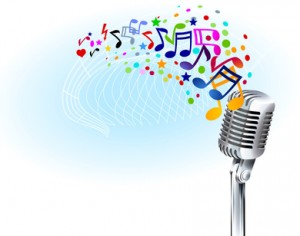 People who no longer can speak due to physical injury – Can Sing!
People who no longer can speak due to physical injury – Can Sing!
SAN DIEGO—It’s an impressive video. An elderly man in thick eyeglasses and a blue shirt sits in a wheelchair. A therapist sits across from him, off-camera. She tries to get him to say he’s thirsty, but he can’t produce the words. Several years ago, the man had a stroke that damaged the part of his brain that lets him talk, a condition known as aphasia.
Then, slowly, things begin to change. The therapist starts humming a simple, haunting melody: two notes at the same pitch, a third a bit higher, then back down. “I am thi-i-rsty,” she sings. Resting her hand on the table, she taps the man’s hand in time, encouraging him to sing along. “I am thirsty,” he sings, in harmony. She sings the sentence; he sings it back. She says the sentence. He says it back. What would you say on a hot day like today, she asks. “I am thirsty,” he answers. In a matter of minutes, a stroke patient who’s been unable to speak for years has learned to express a basic human need….
Making music turns on much of the brain at once. It engages the hearing, emotion, and motor skills. “Singing can give entry into a broken system by engaging the right hemisphere,” says Schlaug. He has compared images of patients’ brains before and after the therapy and found that the right side of the brain changes, both structurally and functionally.
via Music Therapy Gives Voice to the Voiceless – ScienceNOW.
